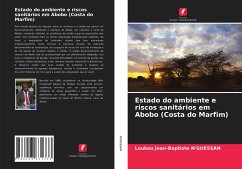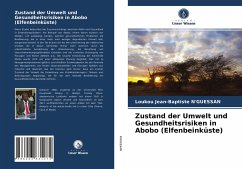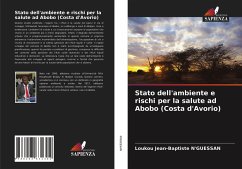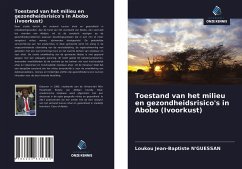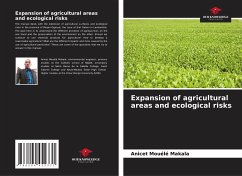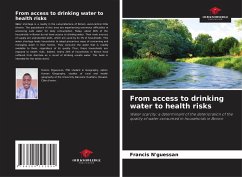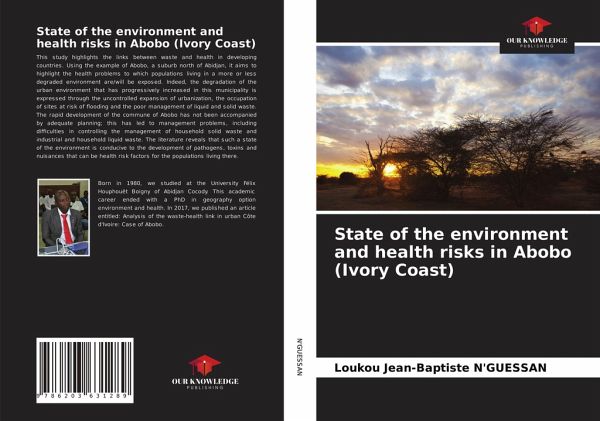
State of the environment and health risks in Abobo (Ivory Coast)
Versandkostenfrei!
Versandfertig in 6-10 Tagen
58,99 €
inkl. MwSt.

PAYBACK Punkte
29 °P sammeln!
This study highlights the links between waste and health in developing countries. Using the example of Abobo, a suburb north of Abidjan, it aims to highlight the health problems to which populations living in a more or less degraded environment are/will be exposed. Indeed, the degradation of the urban environment that has progressively increased in this municipality is expressed through the uncontrolled expansion of urbanization, the occupation of sites at risk of flooding and the poor management of liquid and solid waste. The rapid development of the commune of Abobo has not been accompanied ...
This study highlights the links between waste and health in developing countries. Using the example of Abobo, a suburb north of Abidjan, it aims to highlight the health problems to which populations living in a more or less degraded environment are/will be exposed. Indeed, the degradation of the urban environment that has progressively increased in this municipality is expressed through the uncontrolled expansion of urbanization, the occupation of sites at risk of flooding and the poor management of liquid and solid waste. The rapid development of the commune of Abobo has not been accompanied by adequate planning; this has led to management problems, including difficulties in controlling the management of household solid waste and industrial and household liquid waste. The literature reveals that such a state of the environment is conducive to the development of pathogens, toxins and nuisances that can be health risk factors for the populations living there.



